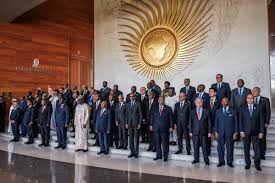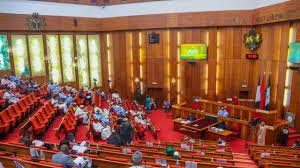How can we ensure that governance programs in response to the COVID 19 Pandemic are equitable and socially inclusive? First, we must understand the nature of our society. We must understand that we are a nation where economic growth is not inclusive, a nation with more than 70 percent poverty rate, more than 40 percent unemployment rate; and a nation where the bulk of the economic activities are in the informal sector, and where the overwhelming majority of those who are able to earn a living, live on daily earnings.
So, when you lockdown and shutdown, you must factor in how those whose livelihoods, and survival depends on daily hustles are going to be able to survive the lockdown, and be incentivised to obey health instructions. Additionally, we must be able to make an assessment of all the sectors of the economy and society that will be impacted by this crisis, and their degree of susceptibility to the direct and vicarious impacts of the pandemic and the response.
Therefore, a socially inclusive response that aims at providing succour for the impacted, and providing support to sustain economic activity must be one that understands these nuances, and is designed in such a way as to appropriately target everyone that needs to be supported.
Success will also depend on the effective coordination of the implementation of all governance polices. In our context, apart from extending targeted support to cushion the impact of the pandemic to businesses, MSMEs, workers, and other vulnerable groups; we must also design the support in such a way that they contribute to stabilising the economy and are able to lay the foundation for economic recovery and inclusive growth.
So, to combat the pandemic, we require products to push and drive Water Sanitation and Hygiene (WASH), as a way of preventing infection and curtailing and containing the spread. We need to ensure massive availability of hand sanitisers, alcohol based detergents, face masks; hand gloves and protective gears for first responders and health workers; and we also need to ensure massive availability of multivitamins, and fruits containing vitamins to boost immunity. By combining the policy of ‘buy made in Nigeria’ with one of support to stabilize the economy; we can design an intervention fund program that targets both MSMEs and big businesses in the production and supply chain for these products, in a manner that we can enable massive production, distribution, and accessibility, at subsidized prices for these products.
This way, we address the requirements for social distancing, while also addressing economic activity, income earning, and social peace. There are several other things we can deliberately target, to support income earning during this period. With respect to testing, treatment and management of positive cases, again a coordinated implementation of mutually supportive policies can also target the pharmaceutical industry, as well as the supply and distribution chains, ensuring priority for Nigeria based production and manufacturing of the necessary pharmaceutical products. This crisis requires us to rethink governance, and reinvent the state.





















